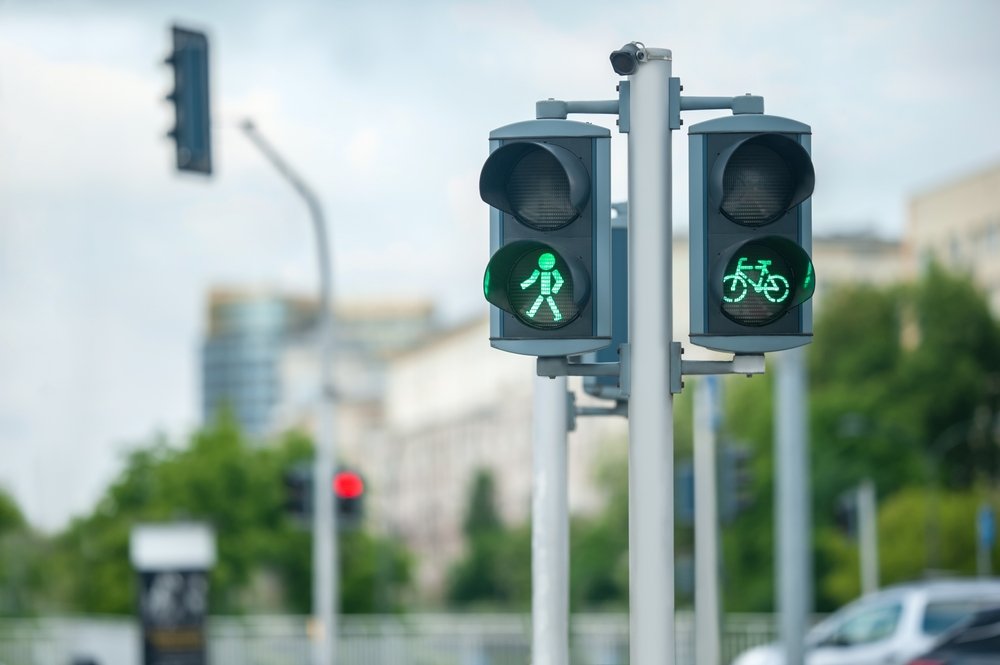Bicycle Accident Injury Frequently-Asked Questions
Should I repair or sell my bicycle and get a new helmet after a bicycle accident in which I have been injured?
No. If your case involves a head injury or traumatic brain injury, an examination of the helmet will be critical. Thus, you should always maintain your helmet. Further, the bicycle itself should be left in the exact condition it was in after the impact. Bicycle cases almost always involve disputed liability and an accident reconstruction expert or bicycle expert will be greatly aided in his or her evaluation of the case by being able to examine the bicycle. With the growing popularity of exercise apps such as Strava, it can be very important to download and save data from the program before it is lost. Also, many intersections now have traffic video cameras and it is important to obtain the video before it is erased.
What are bicycle "buffer zones" ?
Bicycle buffer zones are the "buffered space" around the bike lane that increase the space between bikes and moving cars. These buffered zones are usually marked with painted strips on the pavement to denote the adjacent bike lane. In California, the legislature recently passed "3 feet for safety" act. The act provides for a $250 penalty against the driver if no one is injured. If a bicyclist is injured, it is a $1000 fine. However, violating this law and injuring a cyclist can help establish negligence in a civil suit for damages.
Does this law apply to bicyclists passing cars?
Absolutely not. The law only applies to motorists passing people on bikes from behind. A bicyclist who passes a motor vehicle by less than three feet –- for example, when pulling alongside a car stopped at a red light — would not be in violation of this law.
How do motorists give three feet on narrow roads?
Drivers do not have a right to pass whenever or wherever they want. Motorists may only pass when it’s safe to do so. Motorists also have to be prepared to demonstrate that three feet were NOT available and the slower, closer pass was done according to the law.
Can I cross the double-yellow line to pass a bike?
Technically, no. However, police have the authority to exercise discretion when enforcing the law and are unlikely to ticket a motorist who straddles the double yellow line to provide three feet of clearance for safety of the rider, so long as they do so safely and carefully without posing a risk to oncoming traffic.
I was injured in a bicycle accident, but I wasn't wearing a helmet. Can I still recover damages from the driver?
It depends. In California, anyone under the age of 18 must wear a helmet when riding a bicycle on a street, bikeway, or public bicycle path or trail. This includes children who are sitting in restraining seats or are being towed in a trailer behind the bicycle. The law also requires anyone under 18 to wear a helmet when riding a scooter, skateboard, or when using inline skates. Depending upon the type of injury, not wearing a helmet may or may not be relevant to the amount of damages. The issue is whether or not wearing a helmet contributed to the injuries. For example, not wearing a helmet, and there is no head or neck injury, would make little difference. But in a scenario of no helmet and a head or neck injury is sustained, failing to wear a helmet can substantially reduce recovery because of "comparative negligence" in California. Also, insurance adjusters will likely produce an overwhelming array of documentation demonstrating that helmets usually significantly reduce head injuries. You should immediately consult with an attorney in this scenario.
If you have been injured in a bicycle accident, you should consult an experienced bicycle injury lawyer to protect your legal rights and learn more about any claims you may have. For more about an attorney's role in a bicycle accident case, contact us for a free case review at 530-265-0186
WHAT THE BIG PRINT GIVETH, THE SMALL PRINT TAKETH AWAY: This content is intended for educational purposes only. Phillips Law Offices is authorized to practice law only in California and the above content is intended for California residents only. This content provides only general information, which may or may not reflect current legal developments and you are advised to directly speak with an attorney who is familiar with all the facts and circumstances of your specific case and relevant laws. Phillips Law Offices expressly disclaims all liability in respect to actions taken or not taken based on any of the contents of this website. The above content DOES NOT create an attorney-client relationship and the Phillips Law Offices does not represent you unless you have expressly retained us in writing.
